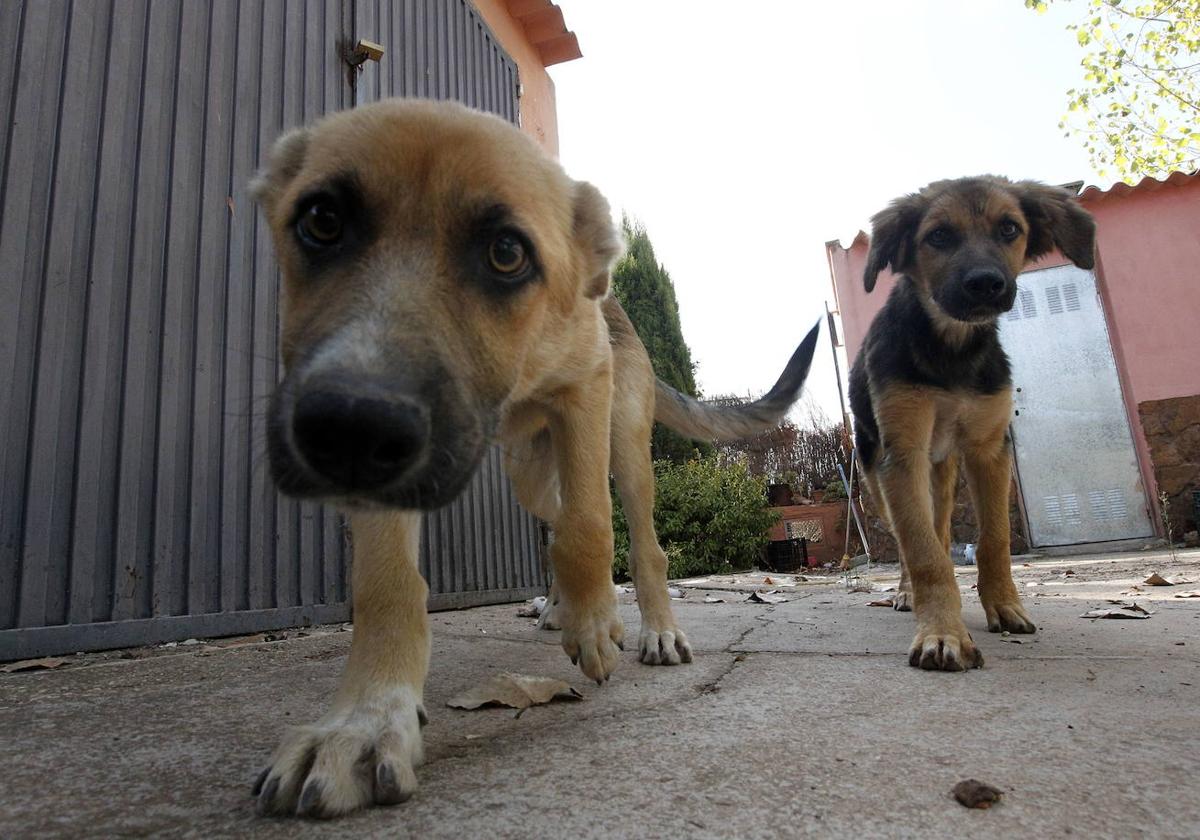

Sections
Highlight

Jaume Lita
Valencia
Tuesday, 22 August 2023, 14:38
Already marked in red on the calendar, 29 September will be an important day for all those who have pets or who wish to have one in the near future in Spain. From that date onwards, several things will change in the regulations governing the coexistence between people and pets, as the country's so-called Animal Welfare Act comes into force.
The regulations will cause a 'tidal wave' of changes, as there are some very basic requirements that will be completely altered. For example, owners will have to notify the ownership of certain pets to avoid problems with the authorities, while others will have to pass a training course to be able to keep dogs. These are just two of the 10 main changes.
1
According to the new regulations, which will come into force in full on Friday 29 September, it will be compulsory to sterilise all animals that are living outside a dwelling. This will mainly affect all those people who have pets in their garden, in outdoor runs or even in rural houses located in mountain or countryside areas.
2
One of the most controversial points is that all people who have pets will have to notify the authorities of their ownership so that a register can be kept of these animals. The aim will be to have all pets 'on file' according to the 'positive list' that the government must approve within 36 months of the new law coming into force. If an animal has not been registered, the owner will be liable to a fine, and obliged to hand the animal over to a protection centre if the pet is not on the list.
3
A limit of three days will be established as the period during which a pet cannot be left without the supervision of a person. In other words, it will be considered a case of 'abandonment' if it can be proved that a pet has been without any kind of care or control for 72 hours.
4
For now, the law establishes that the only animals accepted as basic domestic pets are dogs, cats and ferrets. It has been previously noted that all animals must be registered, but the law also establishes a ban on the sale of these three types of pets in specialist shops. However, the act establishes a 12-month moratorium for establishments to adapt to the new law.
5
Breeding of pets will have new regulations aimed at greater control. Not just anyone will be allowed to keep animals, but only registered and professional breeders will be allowed to do so.
6
There will be no more unjustified euthanasia. The killing of an animal will not be allowed unless there is a veterinary report stating that this is the only possible option. Obviously, the medical condition of the pet will determine whether it is legal or notl.
7
Both the health of the animal and the health of the humans with who it may cross paths on the public highway or in the house have a bearing on this point. An animal bite or attack can lead to many more complications in addition to the actual injuries caused by an attack. The health of the animal is also taken into account in this respect, as it is compulsory to vaccinate all domestic animals according to the regulations.
8
One of the most controversial points when the law comes into force is that the list of dangerous dogs disappears completely. There will no longer be an indication of which dogs are potentially dangerous, but a new control will be established on the basis of a sociability assessment of each large animal.
9
One of the most striking issues has been known since 29 March 2023, the day the new Animal Welfare Law was published in the Official State Gazette (BOE): to own a pet dog in Spain you will have to complete a course and have compulsory insurance. Only people with hunting, guard and working dogs will be 'exempt'.
10
This is a new and important development. Penalties are divided into three groups, with fines of 500 euros or even a prison sentence of one and a half years behind bars. Everything will depend on the seriousness of the offence committed with respect to the new regulatory text. Minor offences will carry a fine of between 500 and 10,000 euros. In the case of a serious offence, the penalty will be between 10,001 and 50,000 euros. If the sanction is very serious: between 50,001 and 200,000 euros. If the offence is committed by a repeat offender or if it is proven that the animal has been injured or killed, the person could be sentenced to prison. If the animal is harmed but does not die, the penalty will be between 3 and 12 months imprisonment, while if the pet dies, the penalty will be between 6 and 18 months behind bars.
Publicidad
Publicidad
Publicidad
Publicidad
Esta funcionalidad es exclusiva para registrados.
Reporta un error en esta noticia

Debido a un error no hemos podido dar de alta tu suscripción.
Por favor, ponte en contacto con Atención al Cliente.

¡Bienvenido a SURINENGLISH!

Tu suscripción con Google se ha realizado correctamente, pero ya tenías otra suscripción activa en SURINENGLISH.
Déjanos tus datos y nos pondremos en contacto contigo para analizar tu caso

¡Tu suscripción con Google se ha realizado correctamente!
La compra se ha asociado al siguiente email
Comentar es una ventaja exclusiva para registrados
¿Ya eres registrado?
Inicia sesiónNecesitas ser suscriptor para poder votar.